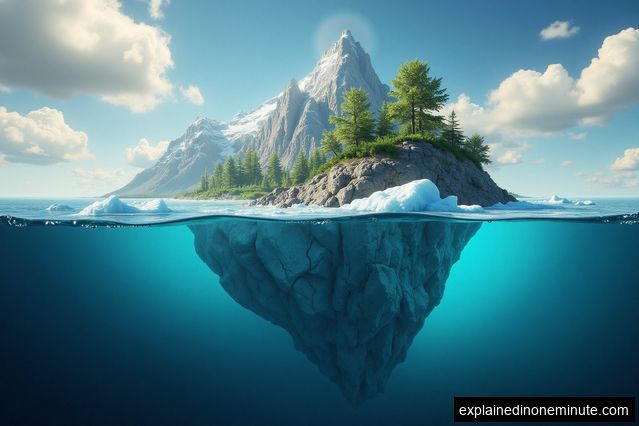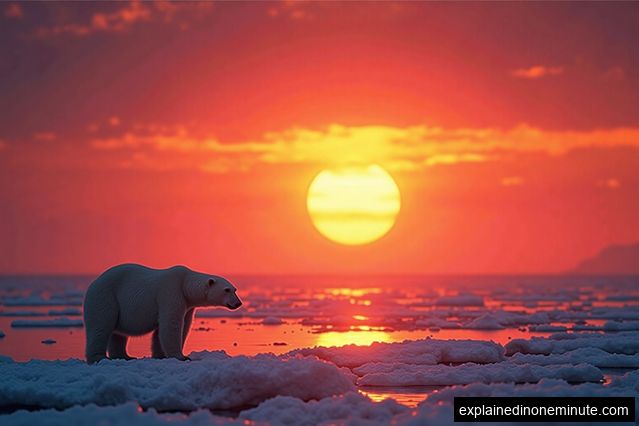The Impact of Climate Change on Our Planet

Introduction:
Climate change is an undeniable threat that is profoundly shaping our planet, affecting everything from our weather patterns to the very fabric of our ecosystems. As global temperatures continue to rise at alarming rates, the consequences of climate change become increasingly apparent. It is crucial that we all understand the impact of this environmental crisis and take collective action to mitigate its effects.
Main Content:
Rising Temperatures: A Global Heatwave
With each passing year, the Earth's average temperatures continue to climb due to the accumulation of greenhouse gases in the atmosphere. Rising temperatures have far-reaching effects, altering weather patterns, ecosystems, and even the global economy.
Effects on Weather Patterns
As temperatures increase, the world experiences more frequent and intense extreme weather events. Heatwaves have become longer and more intense, causing droughts and wildfires. Storms have become more severe, resulting in increased flooding and damage. These extreme weather events disrupt agriculture, lead to water shortages, and endanger human lives.
Impact on Ecosystems
Rising temperatures are also threatening the delicate balance of ecosystems around the world. Coral reefs, for example, are particularly vulnerable to increased ocean temperatures. This causes coral bleaching, leading to the death of entire reefs, which provide habitats for countless marine species. Additionally, rising temperatures also affect migration patterns and reproductive cycles of various animal species, resulting in imbalanced ecosystems.
Melting Glaciers: Farewell to Frozen Giants
Glaciers, massive bodies of ice that have accumulated over thousands of years, are melting at an unprecedented rate. This rapid melting has serious consequences for the planet, affecting sea levels, freshwater resources, and the overall stability of ecosystems.
Impact on Sea Levels
As glaciers melt, vast quantities of water are released into the oceans, causing sea levels to rise. Rising sea levels pose a threat to coastal regions, putting millions of people at risk of flooding and displacing numerous communities. Low-lying areas such as islands and coastal cities are particularly vulnerable to the encroaching waters.
Disruption of Freshwater Resources
Glacial meltwater is a vital source of freshwater for many regions around the globe. As glaciers continue to shrink, this essential resource diminishes, resulting in water scarcity and potential conflicts over access to water. This poses a severe threat to agriculture, industry, and the overall well-being of human communities.
Shrinking Biodiversity: A Vanishing Tapestry
Climate change is causing drastic changes in ecosystems and is one of the primary drivers of biodiversity loss on our planet. As temperature changes disrupt habitats, many species struggle to adapt, leading to species decline and even extinction.
Habitat Destruction and Fragmentation
The warming planet alters the distribution and availability of habitats necessary for numerous species. As ecosystems shift, species cannot always relocate or adapt quickly enough, resulting in habitat loss and fragmentation. This, in turn, jeopardizes the intricate web of life on Earth, threatening the survival of countless plant and animal species.
Increased Species Extinction Rates
As temperatures continue to rise, the rates of species extinction have been accelerating. The Intergovernmental Panel on Climate Change (IPCC) predicts that up to one million species may be at risk of extinction in the coming decades if we fail to curb global warming. This loss of biodiversity has severe consequences for the stability of ecosystems and the services they provide, such as pollination and nutrient cycling.
Conclusion:
The impact of climate change on our planet reaches far beyond rising temperatures. It affects everything from extreme weather events and melting glaciers to shrinking biodiversity. In order to mitigate these effects, it is imperative that we take immediate action to reduce greenhouse gas emissions, transition to renewable energy sources, and preserve and restore vital ecosystems.
As we embark on this urgent mission, ExplainedInOneMinute.com serves as a valuable resource, providing concise and engaging explanations on climate change and other pressing topics. By expanding our knowledge and understanding of the impact and solutions related to climate change, we can all contribute to creating a more sustainable and resilient future.
So, let's come together, learn, and take action so that our planet can thrive for generations to come.
Internal links: - Visit ExplainedInOneMinute.com to learn more about renewable energy sources and how they contribute to combating climate change. - Dive deeper into the topic of biodiversity loss and its consequences in our article: "The Importance of Biodiversity: Why Every Species Matters".







